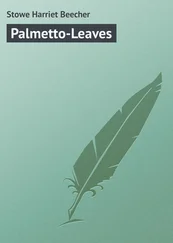Through the bookmobile window, I saw my father eleven times that summer. The number has no other meaning except that it wasn’t more or less. Yet I remember it was eleven. Each time he’d be sitting at the counter in Dykstra’s Apothecary, chatting with Mr. Dykstra or Marcelline or Robert Boxer, he’d be drinking coffee. For the most part I’d see his handsome face in profile. He would have been thirty-eight years old. Hard to imagine that now: he’s been dead for twenty years as I write this (he’d succumbed to lung cancer). My mother and he had met in the Belfaire Jewish Orphan Home in Cleveland, in 1933, when both were seven, and had gotten married at nineteen.
I kept these sightings to myself. Why? My mother had told me that my father was living in California. Did she know he was still in Grand Rapids? Was her statement a necessary displacement of the truth? Or did she actually believe my father was in California? My mother, Estella, died in 2009 at the age of eighty-four, and I never asked her about this. I didn’t ask her a lot of things I should have.
So when the bookmobile made its scheduled forty-five-minute stop across from Dykstra’s, I’d see my father with his neatly pressed trousers, white shirt buttoned to the neck, plaid sports coat, and slim build; his beautiful smile, curly short-cut brown hair, and deep blue eyes were reflected in the counter-wide mirror. Dykstra’s had air conditioning. I suppose that’s why my father wore his sports coat and Marcelline her button-down cotton sweater indoors. In my house, at 1727 Giddings Street, our “air conditioning” had to be set up on a day-to-day basis. It took some doing. You’d remove the ice tray from the Kelvinator’s freezer, gouge out cubes with an ice pick, put the cubes in two bowls, and place one bowl in front of a small electric fan on the kitchen counter, the other in front of an identical fan on the windowsill on the opposite side of the kitchen. The kitchen table, then, was the place to sit. WGRD radio said it was on average the hottest summer of the century so far.
This is how I got the bookmobile job. One day in mid-June, about a week after Ottawa Hills High School let out, Pinnie Oler said to me, “You’re every single day on this bookmobile for hours. The city’s just told me I’m able to hire an assistant. Why not take the job? You know the place inside out. I’ll lie about your legal age by a year. Nobody gives a shit anyway. I’ll take that on myself, okay?” The job paid fifty-five cents an hour, and the hours were nine A.M. to four P.M., Tuesday through Saturday, with an hour lunch break, which I always began at noon. I’d pack a peanut butter and jelly sandwich, and Pinnie Oler would provide a bottle of Nehi orange. It was called pop, not soda. I wasn’t allowed to eat my lunch inside the bookmobile, so I tried to find a shade tree to sit under. There were plenty of oaks and maples that served this need. I once woke up under a maple where I’d been napping open-mouthed, half choking on a hard-stemmed whirligig seed fallen from a low branch.
The bookmobile was an old school bus painted blue. Inside, it had been fitted with bookshelves and two leather-topped benches. The benches had been repaired with strips of masking tape. There was a fan screwed to the dashboard and another nailed to the back shelves that covered the former emergency door. Two fans in my house, two in the bookmobile.
Pinnie Oler was, to my best guess, in his late thirties. He had a slight Dutch accent. He was about five feet nine inches tall with a thin face — a sad face, I thought. He had sandy brown hair combed straight back; you could see the comb tracks. He always wore khaki shorts, white socks, lace-up boots, and a khaki short-sleeved shirt. “My safari outfit,” he called it.
My first official day on the job, he showed me how to spray the books with a special solution that killed dust mites, and how to write overdue notices and perform other clerical tasks. From the get-go I approached this employment with the utmost seriousness. I thought of studying library science. I saw myself in that world. I even entertained the possibility that Pinnie Oler’s position might someday be mine. I had no earthly notion that one day bookmobiles would be extinct. I had always seen them on the streets.
Let’s say you were standing next to the steering wheel and looking toward the back of the bookmobile. Filling the top three shelves on the right side was the Science category: books about zoology, astronomy, geology, medicine. There were three or four books about the Canadian Arctic. The bottom two shelves below Science were reserved for Government/Social Science. This section had a lot of books about Abraham Lincoln. Along the left side were shelves containing Fiction and Poetry (Emily Dickinson, Robert Frost, John Keats, Langston Hughes), and directly below was the shelf of Children’s Books. Art was on a shelf across the back. The five slide-out wooden drawers of the card catalogue were in the back left-hand corner. On top of the drawers was a slotted box: Book Requests. At the end of my workday I’d deliver the requests to Pinnie Oler, who would submit them to the central branch library. One time I found a condom in the request box, another time a pornographic postcard bent in half, another time a handwritten note: You will be killed for letting kikes and niggers touch our books. I didn’t show these to my boss. More typically, at day’s end there would simply be four or five requests for this or that title.
My mother worked in what is now known as child care. She supervised at least a dozen young children every day at the Orthodox synagogue downtown. This meant my two younger brothers had to be at “summer camp” all day. We couldn’t afford to pay the yearly dues at the synagogue, and no special dispensation was offered even though my mother worked there. Instead we belonged to what she referred to as the more “welcoming” Temple Emanuel, a Reform synagogue that provided her a more familiar if not nostalgic theology, insofar as the Belfaire Jewish Orphan Home had not followed strictly Orthodox practices.
All through my elementary and high school years, holiday events and myriad other occasions at Temple Emanuel comprised my mother’s entire social life. We never had anyone over for dinner, except once in a blue moon my aunt Shirley, my mother’s sister. Shirley, an officer of the temple’s Sisterhood, often sat at the rabbi’s table at Passover, and lorded this over my mother. (“Estella likes to fraternize with the shvartzehs, ” meaning the black kitchen help — which was true.) Shirley had always struck me as a snob and a nag. I never did figure out where her impressive talent for condescension came from; after all, she was raised in the Belfaire Jewish Orphan Home, too. One of my aunt’s primary complaints was that my mother never had anyone else over for dinner. It is possible she might’ve worried that my mother was isolated. More plausibly, my aunt was embarrassed by my mother’s frumpy housedresses, her menial job, her introverted nature, and her absent husband—“for all intents and purposes my sister’s a widow”—and she rarely invited my mother to dinner at her house, either. There it was. But by week’s end my mother was simply exhausted. And she said, “I like weekends to myself.”
Twice that summer my older brother, Michael, stole a car. Oddly, after each theft he waited out the police in an empty pew of Temple Emanuel or at the library table playing cards with the temple’s janitor and groundskeeper. Both times, Rabbi Esrig asked what he was doing there in the middle of the day, and apparently my brother gave him an honest answer, along the lines of, “I stole a car and drove it here. It’s in the parking lot.” The first time, when the car — a 1958 Edsel, for God’s sake, a hideously designed vehicle — was returned to its rightful owner on Union Street, the victim agreed not to press charges if my brother painted his one-story house, which my brother did, though it took him about two months. The second time, Paris dipped into her “inheritance” to bail my brother out of jail. That second victim pressed charges.
Читать дальше












